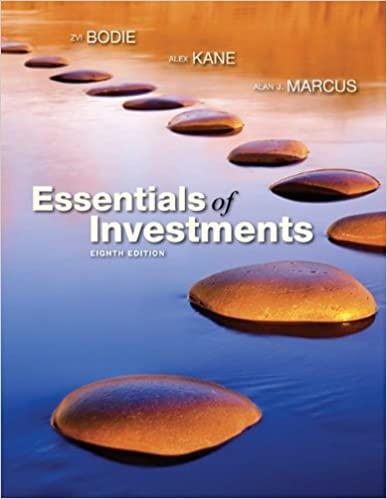> Consider the following scenario and answer the questions that follow: Nabih is a Lebanese young man graduated from the American University of Beirut (AUB) six years ago with accounting and finance undergraduate degree. With his current job as a senior officer cards & acquiring operations in the operations department at Arab Investment Company (AIC) in Qatar, he is happy and satisfied. However, he has a dream, and his dream to become a banker at the Qatar National Bank (QNB), one of the top banks in Doha, Qatar. He feels that an MSc (master of science) in finance would enrich his knowledge in the field and allow him to achieve this goal. After examining different universities, he has narrowed down his choice to either University of Delaware in The US or Toulouse Business School in France. Both schools do not allow its students to work while enrolled in its MSc programme, but may consider work experience as part of the application process. Nabih annual salary at the company is $75,000 and this is expected to increase at 3 per cent per year until retirement. He is currently 28 years old and expects to work for 35 more years. His current job at the AIC includes a fully paid health insurance plan, and his current average tax rate is 50 per cent. Nabih has a savings account with enough money to cover the entire cost of his MSc programme The Business School at University of Delaware is one of the top MSc programmes in the US. The MSc degree requires two years of full-time enrolment at the university. The annual tuition cost is $60,000, payable at the beginning of each school year. Books and other supplies are estimated to cost $2,500 per year. Nabih expects that, after graduation from University of Delaware, he will receive a job offer for about $125,000 per year, with a $25,000 signing bonus. The salary at this job will increase at 4 per cent per year. Because he will be working in the US, his average income tax rate will also be at 50 per cent. The Toulouse Business School began its MSc programme 16 years ago. It is smaller and less well known than the University of Delaware, however the school offers an accelerated one- year programme, with a tuition cost of $75,000 to be paid upon matriculation. Books and other supplies for the programme are expected to cost $3,500. Nabih thinks that he will receive an offer of S92,000 per year upon graduation, with a $10,000 signing bonus. The salary at this job will increase at 3.5 per cent per year. Because he will be working in France, Nabih's average tax rate at this level of income will be 41 per cent. Both schools offer a discounted health insurance plan that will cost $3,000 per year, payable at the beginning of the year. Nabih also estimates accommodation, and life expenses including stipend will cost $20,000 per year at either school. 1 Questions: 1. Why does Nabih wants to pursue an MSc degree? 2. How does Nabih's age affect his decision to get an MSc? 3. What factors (measurable or non-measurable) could affect Nabih's decision to get an MSc? 4. If Nabih receives all his income at the end of each year, how many options does he have? What would be the best option for him from a financial management point of view? 5. Nabih believes that the appropriate analysis is to calculate the future value of each option. How would you evaluate this statement, comment? 6. What initial salary would Nabih need to receive to make him indifferent between attending University of Delaware and staying in his current position? 7. Suppose, instead of being able to pay cash for his MSc, Nabih must borrow the money. The current borrowing rate is 5.4 per cent. How would this affect his decision? Assumptions/hints: I. The appropriate discount rate is 6.5 per cent. II. Assume tax rate in Qatar and the US are identical. III. Consider income after tax unless you want the salary before tax for comparision. IV. Consider costs and benefits together. V. Salary can be seen as an annuity with a growth rate or growing annuity (last formula from chapter 4). PV = C {[1/(-9)] - [1/(r- g)] * [(1 + g/(1 + r))"}








